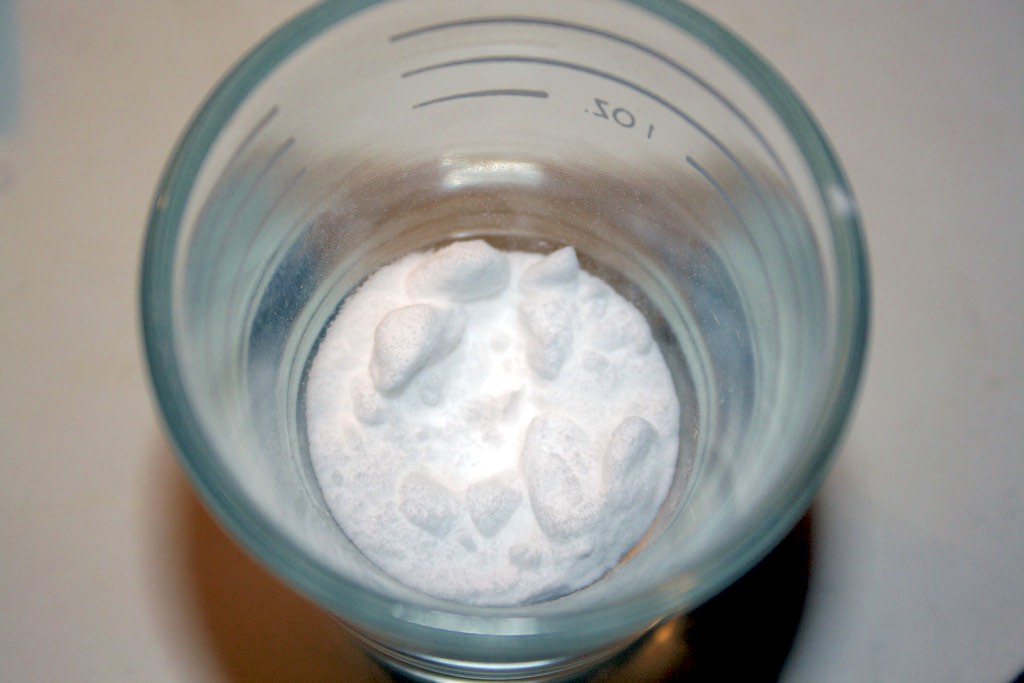A daily dose of baking soda may help reduce the destructive inflammation of autoimmune diseases like rheumatoid arthritis, scientists say.
They have some of the first evidence of how the cheap, over-the-counter antacid can encourage our spleen to promote an anti-inflammatory environment that could be therapeutic in the face of inflammatory disease, Medical College of Georgia scientists report in the Journal of Immunology.
They have shown that when rats or healthy people drink a solution of baking soda, or sodium bicarbonate, it becomes a trigger for the stomach to make more acid that can digest the next meal.
It also gets little-studied mesothelial cells sitting on the spleen to tell the fist-sized organ that there’s no need to mount a protective immune response.
RELATED: The 7 Mental Health Benefits of Running That You May Not Know About
Dr. Paul O’Connor, who is a renal physiologist and the study’s corresponding author, says that it’s sort of reassuring our organs that “it’s most likely a hamburger, not a bacterial infection.”
The mesothelial cells that line body cavities, like the one that contains our digestive tract, cover the exterior of our organs to quite literally keep them from rubbing together. About a decade ago, it was found that these cells also provide another level of protection; they have little fingers, called microvilli, that sense the environment, and warn the organs they cover that there is an invader and an immune response is needed.
Drinking baking soda, the MCG scientists think, tells the spleen – which is part of the immune system – to go easy on the immune response.
CHECK OUT: 10 Amazing Things You Can Learn From Your Poop
“Certainly drinking bicarbonate affects the spleen and we think it’s through the mesothelial cells,” O’Connor says.
The dosage people take daily for alkalinizing their body’s pH, or for use as an antacid, is one-half to 1 teaspoon of baking soda completely dissolved in at least 4 ounces of water.
The conversation, which occurs with the help of the chemical messenger acetylcholine, appears to promote a landscape that shifts against inflammation, they report.
In the spleen, as well as the blood and kidneys, they found after drinking water with baking soda for two weeks, the population of immune cells called macrophages, shifted from primarily those that promote inflammation, called M1, to those that reduce it, called M2. Macrophages, perhaps best known for their ability to consume garbage in the body like debris from injured or dead cells, are early arrivers to a call for an immune response.
In the case of the lab animals, the problems were hypertension and chronic kidney disease, problems which got O’Connor’s lab thinking about baking soda.
MORE: This One Peptide Could Treat MS, Alzheimer’s, Crohn’s, and More
One of the many functions of the kidneys is balancing important compounds like acid, potassium and sodium. With kidney disease, there is impaired kidney function and one of the resulting problems can be that the blood becomes too acidic, O’Connor says. Significant consequences can include increased risk of cardiovascular disease and osteoporosis.
“It sets the whole system up to fail basically,” O’Connor says. Clinical trials have shown that a daily dose of baking soda can not only reduce acidity, but actually slow progression of the kidney disease, and it’s now a therapy offered to patients.
“[So] we started thinking, how does baking soda slow progression of kidney disease?” O’Connor says.
That’s when the anti-inflammatory impact began to unfold as they saw reduced numbers of M1s and increased M2s in their kidney disease model after consuming the common compound.
CHECK OUT: Magnetic Brain Treatment Erases Suicidal Thoughts in Dramatic Portion of Depressed Patients, Study
When they looked at a rat model without actual kidney damage, they saw the same response. So the basic scientists worked with the investigators at MCG’s Georgia Prevention Institute to bring in healthy medical students who drank baking soda in a bottle of water and also had a similar response.
“The shift from inflammatory to an anti-inflammatory profile is happening everywhere,” O’Connor says. “We saw it in the kidneys, we saw it in the spleen, now we see it in the peripheral blood.”
The shifting landscape, he says, is likely due to increased conversion of some of the pro-inflammatory cells to anti-inflammatory ones coupled with actual production of more anti-inflammatory macrophages. The scientists also saw a shift in other immune cell types, like more regulatory T cells, which generally drive down the immune response and help keep the immune system from attacking our own tissues. That anti-inflammatory shift was sustained for at least four hours in humans and three days in rats.
O’Connor hopes drinking baking soda can one day produce similar results for people with autoimmune disease.
MORE: Alzheimer’s Gene is Neutralized in Human Brain Cells for the First Time
“You are not really turning anything off or on, you are just pushing it toward one side by giving an anti-inflammatory stimulus,” he says, in this case, away from harmful inflammation. “It’s potentially a really safe way to treat inflammatory disease.”
The spleen also got bigger with consuming baking soda, the scientists think because of the anti-inflammatory stimulus it produces. Infection also can increase spleen size and physicians often palpate the spleen when concerned about a big infection.
Other cells besides neurons are known to use the chemical communicator acetylcholine. Baking soda also interact with acidic ingredients like buttermilk and cocoa in cakes and other baked goods to help the batter expand and, along with heat from the oven, to rise. It can also help raise the pH in pools, is found in antacids and can help clean your teeth and tub.
(Source: Medical College of Georgia at Augusta University)
Be Sure To Share The Interesting News With Your Friends – Photo by katalopolis -CC BY-NC-SA 2.0





















Would this apply to psoriasis as well?